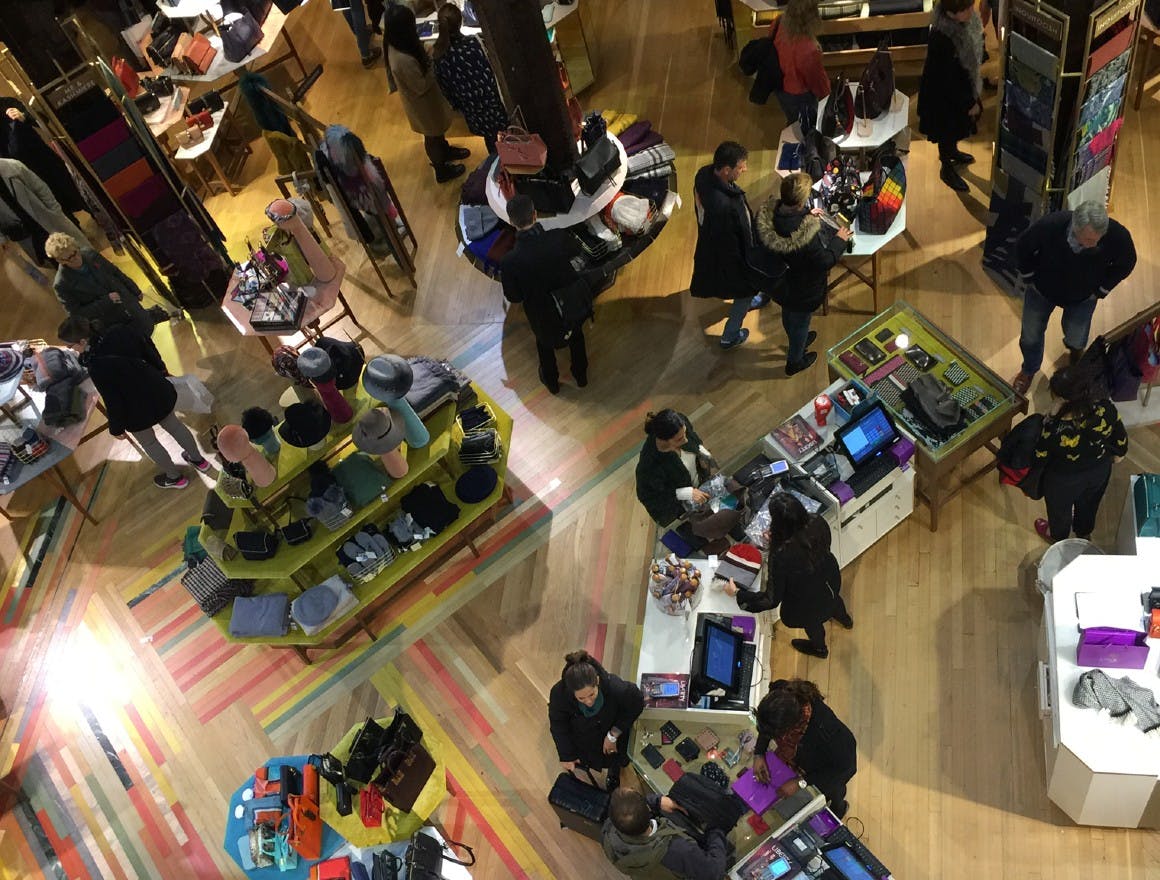What does the future hold for retail workers?
The path to securing the future for retailers is rarely linear these days. However, there’s one significant constant that continues to provide a direct route to strategic success – retail store associates.
Being able to understand what motivates retail strategy at times of great change isn’t always straightforward. Beyond keeping the shop open, the path to securing the future for both retailers and their staff is rarely linear these days.
This isn’t surprising – an industry which has become used to increasingly rapid developments in business-critical areas from retail space to in-store technology is bound to go off-map in its search for solutions.
However, there’s one significant constant that continues to provide a direct route to strategic success – retail store associates. As I discussed in The digital store demands tech-empowered sales colleagues, your best assets deserve investment – in time, resource and technology. Here’s why:
Customers want to talk to store associates
We’re led to believe that shoppers are actively avoiding leaving their homes because they can get everything they need online. This is true to a degree – the convenience of eCommerce is one of the key drivers for in-store transformation. But customer behaviour has consistently proved that they crave a physical shopping experience, and spend more money in stores that give them the best of both worlds.
A recent survey by field marketing agency Gekko showed that most 18- to 24-year olds – an age group traditionally believed to do all of their shopping online - actually prefer getting a personal service and recommendations from in-store staff. A report into online beauty sales by the BBC’s business team backs this up - most customers appear to want to go shopping and try out new products for themselves; in 2017/2018, only 20.8% of cosmetics spending in the UK happened online.
There’s clearly no substitute for an engaged, informed frontline team equipped with the intelligence they need to become each customer’s trusted shopping companion. Retailers need to make this happen by giving them the power to advise, order, sell and cross-sell both online and offline, using customers’ personal preferences as a baseline.
Automation will improve the status of retail staff
Some of the biggest discussions in and out of the boardroom over the last 18 months have centred around AI and machine learning. Some see it as a force for good, while others believe it is nothing less than a threat to our way of life. Of course, the truth lies somewhere in the middle – AI will bring about the end of more mundane retail tasks as scanning, picking and packing and other ‘hygiene’ functions become less dependent on human input. And, while it looks like those predicting a ‘rise of the robots’ have nothing to fear, it will need more resources dedicated to monitoring impact and analysing how the way we work will change.
Around 6 million retail jobs could be lost to automation by 2027, according to a study by Cornerstone Capital Group. Some of those jobs will disappear this year – if it’s easy and cost-effective to train a cognitive machine to carry out simple, repetitive tasks, it makes sense to at least start the ball rolling on AI projects, and there will undoubtedly be a shift in the balance of human to computer in these areas.
At a time when hundreds of people already risk losing their jobs because of the seemingly relentless economic challenges faced by retailers, it can be hard to see any positives.
But the upside of automation is that it raises the bar for services requiring a human touch - our interactions, both physical and online, will continue to evolve into something more in tune with our needs. We’re already accustomed to self-serve, self-scan and chatting to bots, and our encounters with ‘robots’, whether we’re aware of them or not, are going to become part of the fabric of our lives.
Retailers have to prepare for a two-tier system – AI for hygiene-level repetitive services, teamed with higher-paid, better educated human specialists to provide advice and support for customers with more complex needs. This should result in new opportunities for often undervalued and overlooked areas of employment – once they are free from the burden of their more monotonous tasks, people working in sales and services will be able to elevate their roles and skill up.
Retailers need to get ready for a more skilled, emotionally intelligent workforce
The next couple of years will see the start of a subtle restructuring of the way retail human resources works, with IT becoming heavily involved due to the necessary adoption of AI elements to achieve routine tasks. For this process to be successful, sales and service staff will have to become part of the transformation engine rather than simply units for processing business. This depends on equipping them with the right tech, delivering real-time cross-business information to provide the kind of experience their customer is looking for. Emotional intelligence will be just as important as product knowledge – the ability to not only master in-store tech but also read the customer, apply what they know about their personal situation and work with them to make sure they leave the store with a purchase and the intent to return.
A number of retailers including IKEA, Halfords and B&Q have already committed to strategies focused on making this new kind of workforce a reality, and as a result, they’re ahead of the game. The high street will always have a place in the hearts of even the most hardened online shopping enthusiasts – it’s up to retailers to ensure they’ve earned it.

This article first appeared on LinkedIn.
